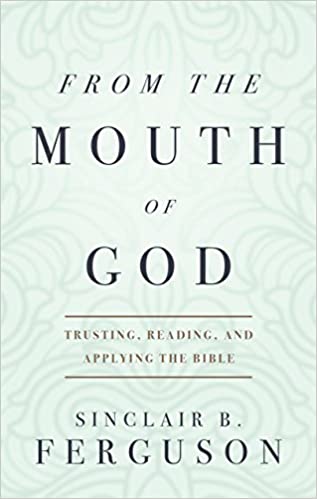A Brief Book Summary from Books At a Glance
by Steve West
About the Author
Sinclair Ferguson is a widely-respected theologian, teacher, and author. He is frequently invited to speak at major conferences, and his ministry has blessed the lives of countless pastors and believers.
Table of Contents
Introduction
Part One – Trusting the Bible
1. It Is Written
2. Getting It Together
3. Is This God’s Word?
Part Two – Reading the Bible
4. Do-It-Yourself
5. Keys
6. Prose, Poetry, Wisdom, and Prophecy
7. Gospels, Epistles, and Visions
8. For Example
Part Three – Applying the Bible
9. What’s the Use?
10. Seeds Need Soil
11. Speaking Practically
Appendices
Appendix A: John Murray ‘On the Guidance of the Holy Spirit’
Appendix B: John Newton ‘On Divine Guidance’
Appendix C: Bibliography for Further Reading
Appendix D: Bible Reading Plan
Summary
Chapter 1: It is Written
The biblical authors regarded the written Scriptures as the very word of God. Christianity has always been a religion based on the Bible, and Christians believe that God speaks through its every word. It is life-giving food and medicine to us. God has revealed himself in every aspect of creation, so his self-revelation is literally inescapable. Tragically, human beings are living in rebellion against God, preferring the darkness to the light, and wanting to remain blind to the truth. In his sovereign grace, God sent his Son to bring his people back into fellowship with him. God’s self-revelation is historical, and it is also verbal. It progresses and is cumulative, being centered on Christ. Scripture is the infallible record of this revelation. It is a personal message from God to us, not merely a textbook for religious or academic study.
When we refer to inspiration, the word refers to the fact that God breathed out the Scriptures. There was a perfect concurrence between what the human authors wrote and what God wanted to be written, so the end result is that God breathed out the word and humans wrote the word. God used numerous individuals from a wide range of backgrounds, but the same Spirit inspired them. In the New Testament, God’s Spirit-filled Christ’s apostles so that they could write the infallible record of Christ. To reach the world, God accommodated his language to human capacities, but this did not result in errors in holy Scripture. The historical context of each passage of the Bible matters, and we do not need to ferret out hidden, esoteric meanings. . . .
[To continue reading this summary, please see below....]The remainder of this article is premium content. Become a member to continue reading.
Already have an account? Sign In
Buy the books

FROM THE MOUTH OF GOD: TRUSTING, READING, AND APPLYING THE BIBLE, by Sinclair B. Ferguson